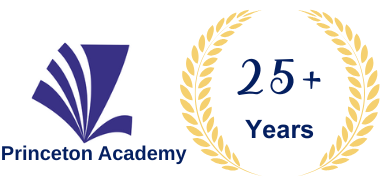panel_start Introduction panel_end
The role of human behaviour is an essential
factor in work performance in any organization.
​Challenging behaviours at work can cause stress, loss of productivity, loss of
revenue, low morale, and disturb the work culture and performance of
individuals and co-workers.
Research points to behavioural skills professionals use every day.
- from trying to adapt to constant change;
- prioritizing our time to work on the most important things;
- learning to listen and collaborate in a team; and
- understanding how to communicate our ideas, findings, and recommendations clearly and compellingly.
​This workshop on Behavioural skills focuses on and supports organisations to address employee behavior problems and develop optimal human behavior for better work relationships, work performance, innovative and robust work culture. ​
​People at work may possess Basic behavioural skills, however high performing work environments may require employees to demonstrate higher standard of professionalism and performance with excellent communication, teamwork and leadership skills.
panel_start Course outline panel_end
The Live online Behaviour course will focus on the Commonly Desired Behavioral Skills identified by research in 2020 –
- Interpersonal skills
- Teamwork
- Goal setting
- Influencing Skills & Motivation Skills
- Problem solving
- Self Leadership
- Delegation Skills
- Conflict Resolution
- Stress Management & Resilience
- Agility
- Risk Taking
Interpersonal Communication
- Learning the importance of open and clear communication and how to practice the same.
- Understanding the perils of mitigated speech, communication gaps and no communication.
- Practicing active listening skills and how to give and receive healthy feedback.
- Discussing collaborative communication.
- Uncovering communication filters, external behavior versus internal response, disclosure, emotional barriers.
- Effect of body language, tone and words
Conflict Resolution
- Avoiding the ostrich mentality of hiding from the storm and ignoring workplace conflict.
- Mining for and then resolving conflicts breeds trust and then powerful relationships.
- Having different points of views and ideas can give rise to conflict but its discussion and acceptan ce can lead to innovation and growth.
- Understanding that one should not stick to their positions adamantly but instead concentrate on interests.
- Learning tenets of conflict resolution – not getting personal, keeping focus on the issue under discussion, mutual respect.
“Seek first to understand, then to be understood
Team Work
- Achieving common goals more effectively in synergy with self, team and organizational objectives.
- Increased cohesiveness and trust across the team.
- Developing enhanced problem solving skills during complex situations.
- Members collaborating on decision making.
- Formulating innovative team strategies.
- Managing conflict between team members.
- Practicing open and transparent communication between team members.
- Understanding the importance of inter-dependence between team members.
- Leveraging complementary strengths of a team member
Leadership & Delegation
â—Â
Addressing the 3 basic aspects of employee engagement:
~ The employees and their own unique psychological makeup and
experience.
~ The employers and their ability to create the conditions that promote
employee engagement and motivation.
~ Interaction between employees at all levels.
Creating an environment conducive to this partnership, and a win-win
equation.
◠Identifying employees in different stages – engaged, fence sitter, actively
disengaged and suggest how turn-arounds can be initiated.
â— Accepting that disengagement or alienation is central to the problem of
employees’ lack of commitment and motivation and hence cultivating a
culture of employee engagement.
â— Identifying key drivers, facing fears, building self-confidence,
practicing positivity
Princeton Academy Resources https://princetonacademy.in/resources/
5 Important Workplace Behavioral skills
COURSE SCHEDULE & FEES
DOWNLOAD COURSE CONTENTS
Please click the button below to download the course content. You'll need to provide your contact information to receive the document.
REQUEST MORE INFORMATION
Please fill out the form below to request more information about this course.
Error: Contact form not found.
